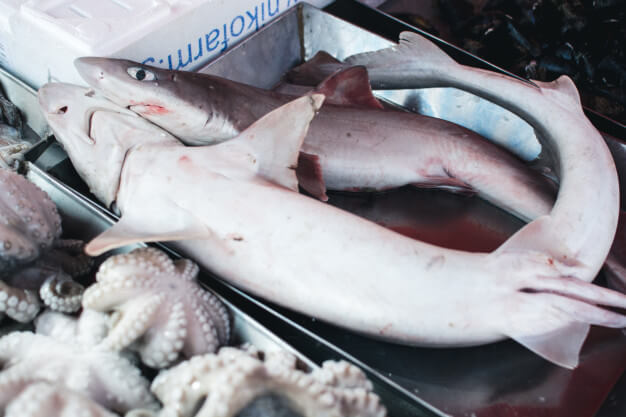Pressure on fish stocks has led to sharks being passed off as swordfish or tuna, endangering the Mediterranean ecosystem
Franco Comes last caught sharks more than six months ago, while longline fishing for swordfish in the Adriatic Sea off the coast of Monopoli, Italy. He hauled in an accidental handful of blue sharks. They were tiny.
“They are fewer and fewer, and they are also becoming smaller,” Comes says. “Twenty years ago, there used to be so many sharks – so many! They seem to have decreased by 80%. It’s not just me: every fisherman around here has noticed.”
Sharks have populated the Mediterranean for millions of years; paintings of sharks on vases precede the Roman empire. A century ago, there were so many white sharks in the Adriatic that local authorities reportedly paid fishermen to go on a killing spree.
But the Mediterranean has now become the world’s most dangerous sea for sharks, biologists say. As fishing crews pushed to catch ever-higher numbers of tuna, swordfish and other species, more sharks ended up in their nets – and now shark meat is increasingly being sold as something else to shoppers and diners.
Today, more than half of the 73 species of sharks and rays found in the Mediterranean are at risk of extinction, according to the International Union for Conservation of Nature (IUCN). Shortfin mako, white and basking sharks, and many others, have been decimated. Some shark populations have dropped by up to 90%. Even some species that are doing relatively well elsewhere – such as the blue shark, a deep blue and white species growing to about three metres – are critically endangered in the Mediterranean.
Read the rest here:https://www.theguardian.com/environment/2020/jul/08/seafood-why-your-mediterranean-swordfish-might-actually-be-shark
